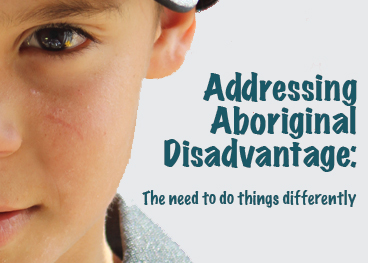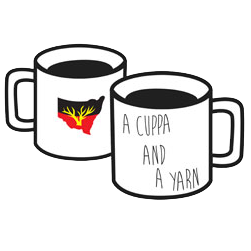
13 October, 2011
NSW OMBUDSMAN'S REPORT SHINES LIGHT ON MORE GOVERNMENT FAILURE: NSWALC
MEDIA STATEMENT
FOR IMMEDIATE RELEASE
October 13, 2011
The NSW Aboriginal Land Council has welcomed the report Addressing Aboriginal disadvantage: the need to do things differently released by the NSW Ombudsman earlier today.
It is the second report out of the NSW Government in the past few months that has shone a light on the appalling failures of government service delivery to Aboriginal people in NSW.
It follows on from the secret federal government report, Indigenous Expenditure Review 2010, which confirmed the massive underperforming Commonwealth effort and revealed that billions of dollars of taxpayer funds mean to tackle poverty amongst the nation's most disadvantaged people had been wasted by successive bureaucracies.
Chief Executive Officer of the NSW Aboriginal Land Council, Geoff Scott said the NSW Ombudsman's report goes further than any before it, by strongly acknowledging the need for Aboriginal people to be at the centre of the decision-making processes around government engagement.
"We welcome this report and congratulate the Ombudsman and his staff on taking the initiative to produce this very timely and focused analysis," Mr Scott said. "It succeeds where so many have failed, simply by focusing on the facts. The report highlights that the greatest shortcomings are proper process and governance on the part of the government itself.
"The report also clearly exposes the lie of the usual mantra - blame Aboriginal people for the lack of progress and ongoing failures. It also confirms - in stark and clear detail - the reality we all face today. That is that the practices and the cheap point scoring of the past must be cast away.
"Australian taxpayers have a legitimate gripe that all this effort - and it is significant - has not produced the expected results."
Mr Scott said the way forward was clear - genuine partnership between government and stakeholders was the key to progress.
"Working alone Aboriginal people, policy makers and government did not have the answers, but working together we have the best chance and arriving at the solutions," Mr Scott said. "To turn this state of affairs around, we need real leadership and courage. And we must we all give a collective commitment to making a real difference.
"If governments do not take heed of the facts and messages of these reports, then the future of Aboriginal people will continue to be uncertain, and our continuing state of disadvantage will remain a blight on all Australians."
Mr Scott acknowledged that the NSW Government appears to have already realized some of the key findings of the Ombudsman's report.
"Despite only being in office a short time, Minster for Aboriginal Affairs, Victor Dominello has already moved quickly to put in place the first initiative to change this sad circumstance.
"He has established a Ministerial Taskforce at which Aboriginal people finally have a seat at the table. This is a strong acknowledgement from the O'Farrell Government that the old 'top down' approach has failed.
"The Taskforce will look into the delivery of government services, particularly in the areas of education and employment opportunities, and while it's very early days, the fact that Aboriginal people are at the centre of the process is encouraging."
"The Ombudsman's report will provide the Ministerial Taskforce with a very good reality check."
NSWALC will be represented on the Taskforce through the Coalition of Peak Aboriginal Organisations (CAPO).
Media contact:
Chris Graham Chris Munro
0407 555 328 0438 760 242
The report is available from the NSWALC website: /media/73895/sr_aboriginal%20disadvantage%20report%20oct11.pdf
BACKGROUND: WHAT THE REPORT SAID ABOUT NSWALC:
"As the largest self-funded Aboriginal representative organisation in Australia, the NSW Aboriginal Land Council (NSWALC) has a key role to play in formulating economic opportunities. The objects of the NSWALC are to use the gains from land rights to continue to create intergenerational wealth and to continue to develop sustainable benefits which contribute to the financial, social, and cultural needs and wants of Aboriginal people in NSW.
- Page 9, NSW Ombudsman's report, Addressing Aboriginal disadvantage: the need to do things differently
"Building the economic capacity and wealth of Aboriginal people will require government to identify and address the factors which act as barriers to Aboriginal organisations actively participating in the real economy. Given NSWALC's significant asset base and its responsibilities to contribute to the economic, social and cultural development of Aboriginal people, NSWALC and its network of Local Aboriginal Land Councils (LALCs) has a critical role to play in establishing partnerships with government, the corporate sector, philanthropic bodies and others, that are focused on developing innovative enterprises that create real opportunities for Aboriginal people."
- Page 9, NSW Ombudsman's report, Addressing Aboriginal disadvantage: the need to do things differently
"In looking for models of effective capacity building that could be adapted to Aboriginal communities in NSW, the NSWALC and University of Sydney have recently established a partnership with Gawad Kalinga, an NGO that has implemented a community development program in more than 300 communities in the Philippines. In its initial stages, the Gawad Kalinga program aims to develop community leadership and to foster self-governance and self-sufficiency among residents. Over time and with the right support, this approach can pave the way for social entrepreneurship in the form of community infrastructure, self-sufficient food supply, youth programs, basic health care and environmental sustainability projects."
- Page 10, NSW Ombudsman's report, Addressing Aboriginal disadvantage: the need to do things differently
"A significant non-government investor in programs to strengthen governance at a local community level is the NSW Aboriginal Land Council. Through its Training and Development Unit, the NSWALC provides an extensive range of training and development to its network of LALCs, including mandatory training for those community members who are elected to board of management positions. This training is principally aimed at assisting LALCs to improve the efficiency and effectiveness of all land council operations. The training and development assistance provided by the NSWALC is generally well-received. Board members who have previously completed mandatory governance training are not required to do it again, yet many re-elected board members chose to do so. The NSWALC has also developed an innovative online mode of delivery to extend the availability and timeliness of its training. Its training was recognised as a finalist in the 'Innovation' category of the NSW Training Awards presented in September 2009. NSWALC has recently been asked to contribute to a project to improve governance in the Aboriginal Health and Medical Research Council, in Aboriginal medical services across Australia and to develop more robust corporate governance models for the Aboriginal Community Controlled health sector generally."
- Page 11, NSW Ombudsman's report, Addressing Aboriginal disadvantage: the need to do things differently

